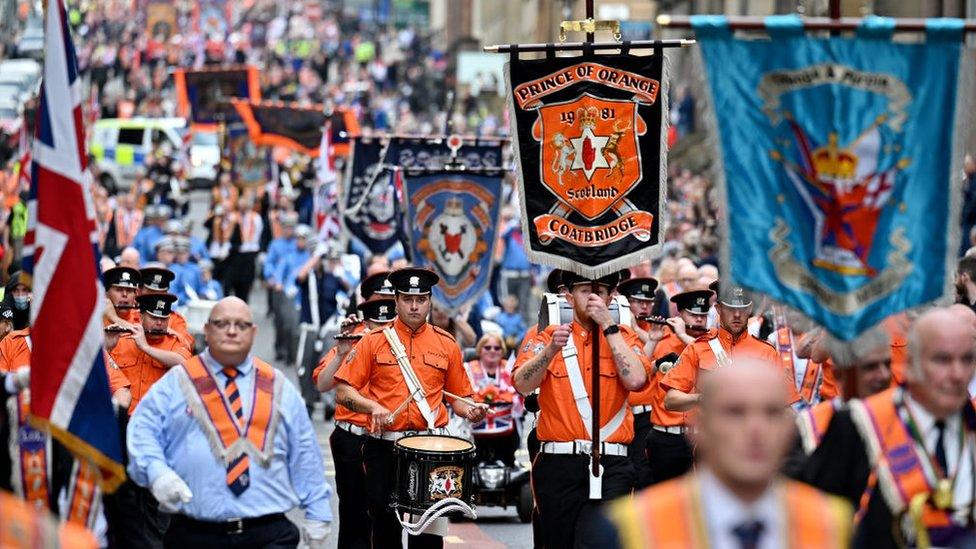Scotland doesn't need parades commission, says report
- Published
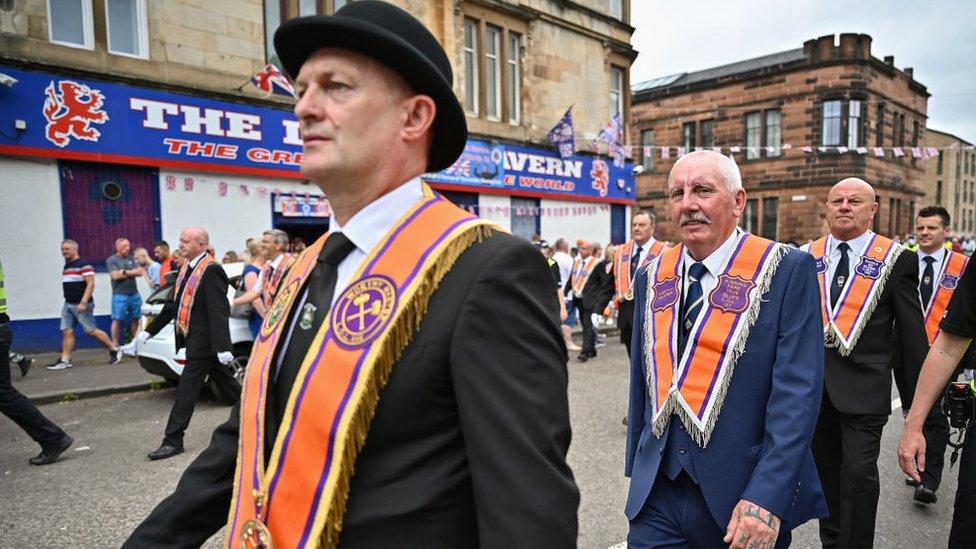
The creation of a Northern Ireland-style parades commission is not necessary in Scotland, a report has found.
The move was proposed last year after police made several arrests at a series of Orange Walks in Glasgow.
But a working group on peaceful assemblies in Scotland said there was "no present need" for such a body.
It concluded improvements would be best handled at a local as opposed to a national level.
The independent parades commission in Northern Ireland, external was set up in 1998. It followed the Drumcree crisis over an Orange parade marching through a nationalist area in County Armagh.
It has the power to place restrictions on public processions and related protest meetings.
In Scotland, the local authority receives notifications of processions and is the central decision-making body.
Last year, concerns were raised in the Scottish parliament after anti-social behaviour linked to Orange Walks, including sectarian and racist singing.
'Fruitful comparisons'
First Minister Nicola Sturgeon said the government would give "further consideration" to whether a commission should be established.
This led to the creation of a short-life working group featuring experts on marches, human rights, community engagement and mediation.
It has now made 18 recommendations, external but concluded there was no need for major reform.
The report said: "While we have found there to be many fruitful comparisons between the regulatory processes in Northern Ireland and Scotland, we have not heard evidence that would justify the transplantation of the NI Parades Commission model to Scotland."
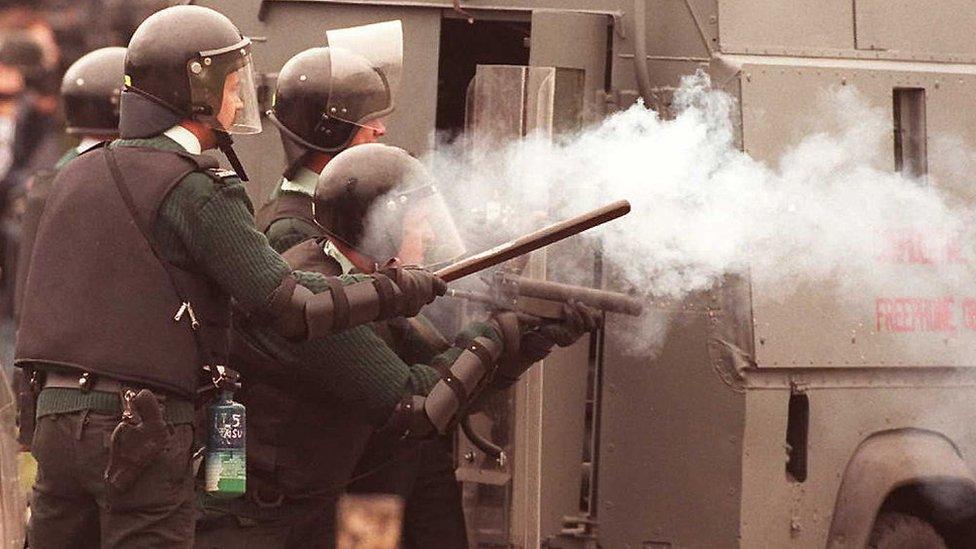
The Drumcree crisis in 1996, which saw police fire plastic bullets, led to the formation of Northern Ireland's Parades Commission
Justice Secretary Keith Brown said: "Marching, parading and protesting is of great importance to many people in Scotland for cultural, community and political reasons.
"The Scottish government fully recognises this and is committed to freedom of speech and to upholding the human rights of those seeking to participate in such events.
"But in doing this we must also ensure that the rights of those seeking to go about their business undisturbed are also protected."
Mr Brown added it was important to strike a balance between the rights of those who seek to march or protest and the communities affected as a result of such events.
"We will continue to hold meaningful and productive dialogue with march and parade organisers, community representatives, Police Scotland and local authorities to ensure that, collectively, we continue to work towards achieving the correct balance of right for all," he added.
Prof Dominic Bryan, who chaired the working group, said: "Members of the working group were impressed with much of the work already undertaken by local authorities in sometimes challenging circumstances.
"We believe that our recommendations will offer a sustainable way forward for the facilitation and regulation of processions in Scotland reflecting important human rights considerations."
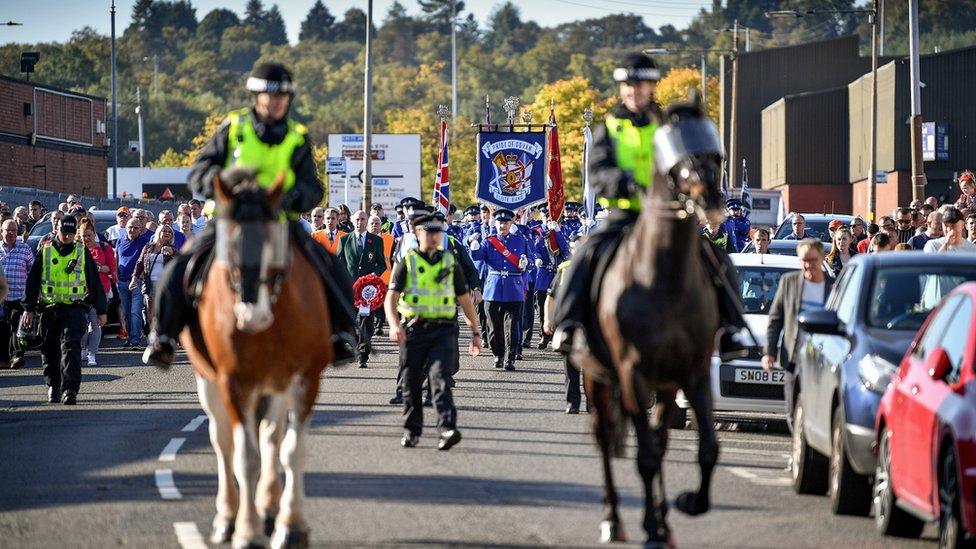
Thousands of people attend Orange walks in Glasgow
The report also calls for improvements to the notification process around marches to ensure relevant information is available for communities.
And it recommends exploring ways to limit the need for public order policing.
For example, it highlights examples from Derry where the Apprentice Boys train their own stewards in order to reduce the policing required at their events.
It said this model could be supported in Scotland through providing resources to groups.
The report adds: "Such funding offers a community policing alternative to the deployment of public order resources and thus potentially saves money.
"It also underpins the state's commitment to protecting the right of peaceful assembly and other rights and freedoms."
Key partners, including the Scottish government, the City of Edinburgh Council, Glasgow City Council, Police Scotland, Cosla and human rights experts will now come together to consider the report recommendations and agree the best way forward.
Related topics
- Published23 September 2021
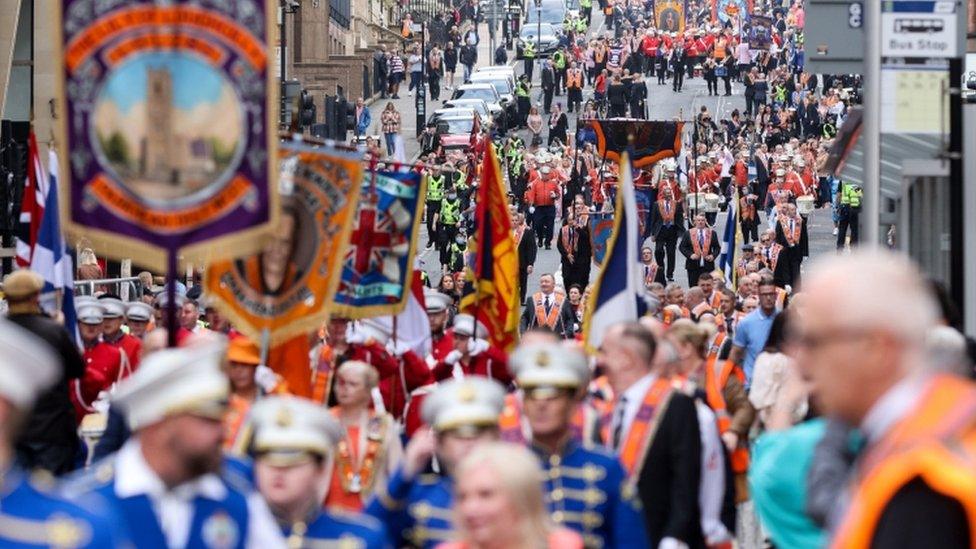
- Published18 September 2021
